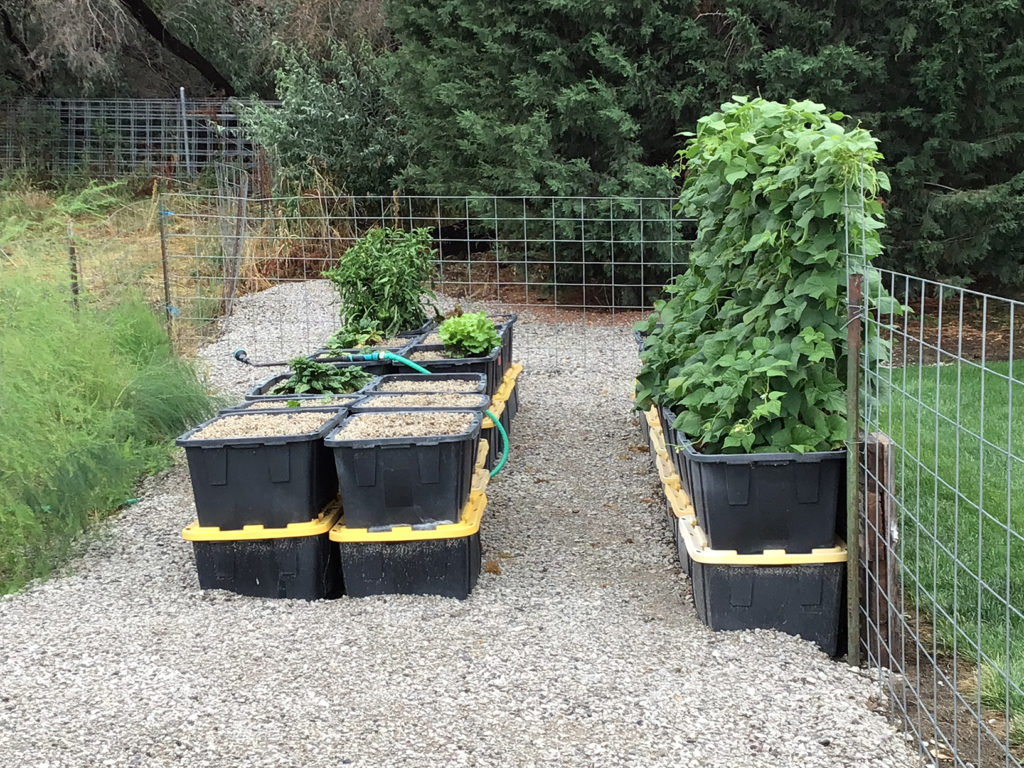
In the 2021 Nevada Legislature Senate Bill 297 was introduced by Senator Pat Spearman of North Las Vegas. It was passed by the Senate on a 21-0 vote and also got approval by the majority in the Nevada Assembly 36-6. Governor Steve Sisolak signed the bill into law on June 3, 2021.
Because of these actions, Nevada now has a law dealing with urban agriculture. The Council on Food Security has been directed to research and develop recommendations on community gardens and urban farms. County Commissioners are authorized to approve a partial abatement of ad valorem taxes for owners of real property who agree to use their property for community gardens or urban farms. Under the law there are also provisions which deal with authorizing governing bodies of a county or city who own a municipal water system to provide water for community gardens or urban farms at a wholesale or reduced rate.
Having such a law, such as SB 297, does not guarantee urban agriculture to sprout and thrive, but it does open the door for conversations with zoning and planning entities as well as other local governing bodies. It also sets the stage for enterprising persons to consider opportunities that they might wish to pursue.
Enterprising persons are considering their opportunities in Southern Nevada where a Small Farm Conference drew their participation in August. Through the coordination of the Clark County Farm Bureau and the Nevada Cooperative Extension a Small Farm Conference was organized and conducted, drawing over 100 persons to attend. Those interested in such opportunities are also working with each other to network and organize future plans to address the areas of need that they to resolve and work through.
Plans are also underway for something like the progress in Southern Nevada, in Northern Nevada.
The experience of what took place during COVID ought to have given us some perspective as it relates to being prepared to respond in improving options for adequate food supplies. This is especially so in areas labeled as “Food Deserts” because of their total dependence on food being shipped in from outside areas and marketing/supply channels of staying operational in the face of those circumstances that we confronted then.
We are not here to suggest that urban agricultural production will replace the incredible food production capabilities of our modern agricultural sector. We are blessed as a nation to have the benefits which the commercial agricultural provides along with the infrastructure and industries related to our food supply systems. Americans have the most affordable, safest and reliable food supplies in the world.
The benefits of urban agriculture come in the form of supplementing our food supplies with options and alternatives that individual consumers consider as a value they wish to support. Their interests in knowing the farmers who are producing their food and having personal relationships with these producers should be a welcome option. Simply having consumers understand and appreciate the requirements connected with food production is a positive condition for everyone.
Providing opportunities is one thing, enhancing the ability for those who are interested in pursuing those opportunities is something even more important. Starting and implementing a successful urban farm is an uphill climb with extreme challenges that go far beyond putting seeds in the soil and pulling weeds when that’s required. It requires a solid plan with realistic recognition of business requirements of producing and marketing the output from your operation. It also requires a support system you can turn to for advice and encouragement.
We are closely watching the new program that is taking shape with the Desert Farming Initiative (DFI), connected with the University of Nevada Agricultural Experiment Station in Reno. This new program involves a pilot program to work with two paid interns, learning through hands-on experiences the lessons they need to get a producing agricultural enterprise in operation. These apprentices are setting out on important trial, determining what it takes to help build the skill sets necessary for starting and successfully operating a farming operation.
It is also worth noting that federal agencies are gearing up their program support for urban agricultural production. The United States Department of Agriculture’s (USDA) Farm Services Agency (FSA) and the Natural Resources Conservation Service (NRCS) have both indicated that they have initiatives taking shape to support urban agriculture enterprises. Both agencies are just getting their programs into place in Nevada, but it is worth noting that these support systems are getting underway and should be on contact lists for those who want to enter agricultural production as business owners.
While details of what might be included in the next Farm Bill are currently unknown, there has been an emphasis in pre-Farm Bill preparation for considerations related to specialty crops and other food producing enterprises like urban agriculture. These types of programs offer additional components to fit into the necessary infrastructure networks that can assist farmers to establish working and ideally successful operations.
It will take a lot more than passage of a single piece of Legislation to establish a thriving Nevada urban agricultural sector. It will take a lot of committed individuals working together, trying, failing and learning to make something happen.
NFB is interested in working with groups and individuals to collaboratively seek opportunities and identify solutions for the challenges that are ahead in possibly carving out a place for urban agriculture in our state.
By Doug Busselman | NFB Executive Vice President

